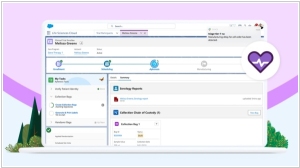Telegram vs WeChat
June 07, 2023 | Author: Adam Levine
17

Telegram is a messaging app with a focus on speed and security. It’s super-fast, simple, secure and free. Telegram seamlessly syncs across all of your devices and can be used on desktops, tablets and phones alike. You can send an unlimited amount of messages, photos, videos and files of any type (.doc, .zip, .pdf, etc.). Telegram groups have up to 200 people and you can send broadcasts to up to 100 contacts at a time. Be sure to check our website for a list of Telegram apps for all platforms.
Telegram and WeChat are both messaging platforms with distinct features and regional popularity. Telegram, developed by Telegram Messenger LLP, is known for its emphasis on privacy and security. It offers end-to-end encryption, self-destructing messages, secret chats, and features like channels and bots. Telegram also provides cloud-based storage for file sharing and supports voice and video calls. On the other hand, WeChat, developed by Tencent, is primarily popular in China and has a large user base in Asia. In addition to messaging and voice/video calls, WeChat offers social networking features, mobile payments, mini-programs, and access to a variety of services within the app. WeChat stands out for its extensive functionality and integration of multiple services.
See also: Top 10 Business Messaging platforms
See also: Top 10 Business Messaging platforms
Telegram vs WeChat in our news:
2024. Telegram launches Business accounts
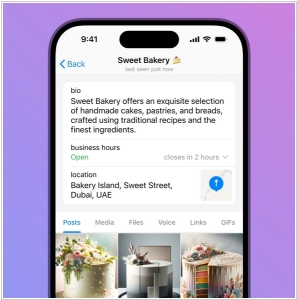
Telegram is gearing up to compete against Meta's WhatsApp and Messenger by unveiling a suite of new features tailored for businesses, alongside support for ad-revenue sharing. Launched recently following an initial announcement, Telegram Business introduces various options such as personalized start pages, the ability to establish business hours, preset replies, greetings, and automated away messages, as well as chatbots and chat tags. This move is expected to further bolster Telegram's Premium service, providing accessible tools and features for business users without the need for coding knowledge. Notably, businesses can now showcase their operating hours and location on a map, and initiate conversations with customers through customized start pages, offering text and sticker options. Similar to WhatsApp, Telegram Business also includes "quick replies" enabling users to access formatted preset messages containing links, media, stickers, and files.
2022. Telegram is now offering a Premium subscription
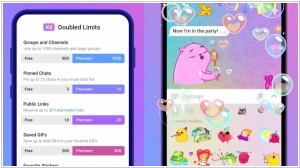
Telegram is introducing a Premium subscription to leverage its significant growth. Priced at $5 per month, Telegram Premium offers a range of additional features alongside the existing free functionalities. Subscribers can now enjoy the ability to upload larger files, with a size limit of up to 4GB, as well as accelerated file downloads. Furthermore, the subscription doubles various limits within the app, such as the ability to follow up to 1,000 channels, create 20 chat folders with 200 chats each, pin 10 chats, save 10 favorite stickers, and add a fourth account to the app. Premium users also gain access to exclusive stickers, including those with full-screen animations, unique reaction emojis, premium badges, and voice-to-text conversation capabilities.
2021. Telegram added group video chat and screen-sharing
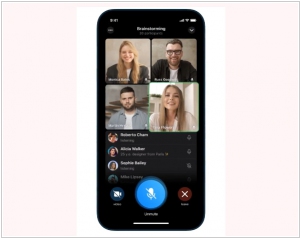
Telegram has introduced a new feature that allows users to engage in video chats with up to 30 people. This functionality is integrated into the Voice Chat feature of the app. When initiating a voice chat room, you will now notice a camera icon, which, when tapped, enables your video feed. Similar to other video conferencing applications like Zoom and Google Meet, Telegram allows you to expand the video to fullscreen and pin a specific participant to the center of the call. This ensures that the focus remains on the pinned individual even when others join the chat. Furthermore, Telegram now supports screen sharing. While on a video call, you have the flexibility to switch between your camera feed and the content displayed on your screen or even show both simultaneously.
2019. Telegram now allows to kill chat history
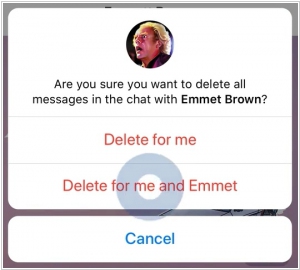
Telegram has introduced a new feature that enables users to delete messages in one-to-one and/or group private chats retrospectively, extending beyond their own inbox. With this feature, users have the ability to selectively delete their own messages as well as messages sent by others in the chat. To delete a message from both ends, users simply need to tap on the message, choose the 'delete' option, and then they are presented with two choices: 'delete for [the name of the other person in the chat or 'everyone']' or 'delete for me'. Opting for the former option removes the message across all devices, while the latter option only removes it from the user's own inbox. This feature grants users greater control over their conversations and ensures privacy and discretion when needed.
2018. Telegram’s new widget lets businesses connect with users
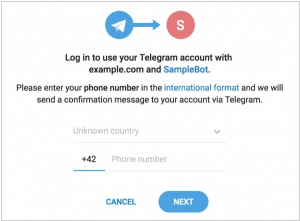
Messaging app Telegram has introduced a new web login widget feature. This functionality enables website owners, particularly business owners, to establish a direct connection with Telegram users through a Telegram bot integrated into their site. By combining the bot with the web plugin, businesses can leverage this system to send reminders, sales confirmations, updates, and other relevant information directly to customers via chat. It's worth noting that Facebook launched a similar plugin last year, enabling businesses to connect with users through Messenger. Additionally, Facebook is developing business-focused applications that allow companies to tap into its vast monthly userbase of 1.5 billion, with upcoming payment features on the horizon as well.
2017. Telegram adds unsend feature
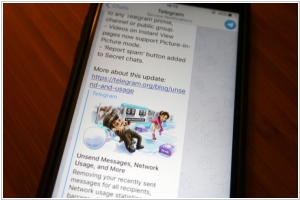
The popular messaging app Telegram has introduced a new feature called "unsend," allowing users to retrieve or delete messages within a two-day timeframe after sending them. In a similar move, the secure messenger Signal also recently incorporated an ephemeral messaging feature back in October, primarily focusing on maintaining tidiness rather than emphasizing privacy. Telegram's unsend functionality is applicable to both one-to-one and group messaging scenarios but must be utilized within the 48-hour window. The intention behind this feature is to provide users with a way to address "morning after messaging regret" by enabling them to erase content they wish they had never expressed.
2016. WeChat launched Enterprise version

The Chinese messaging platform WeChat has introduced its latest offering, WeChat Enterprise, a free office chat application. Currently, it is exclusively available in Chinese and can be accessed through iOS, Android, Windows, and OS X apps. WeChat Enterprise incorporates various features that will be familiar to users of business chat applications, along with some noteworthy innovations. This service has the potential to replace group emails and facilitate seamless and efficient communication among colleagues. Additionally, it offers convenient add-ons such as the ability for employees to indicate their break times, conduct group voice/text chats, and allows companies to incorporate specific functionalities like automated forms for expense reimbursements, vacation requests, and similar tasks.
2016. Telegram released Bot Platform 2.0
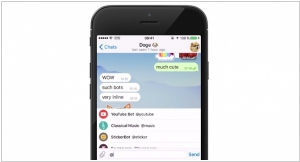
The bot platform of the messaging platform Telegram has announced a significant 2.0 update, marking its largest update since its launch last year. This update introduces the capability for developers to create bots that can send various types of content supported on Telegram, including documents, MP3s, videos, stickers, animations, and contacts. It also includes support for location-based services and allows for deep integration with other services based on users' phone numbers. Furthermore, the update incorporates inline keyboards that can be customized to align with a specific bot's messages. This feature enables users to simply tap on predefined buttons to interact with the bot, eliminating the need to type out specific instructions. To showcase these new features, Telegram has developed four sample bots: @music, which allows users to search for and share classical music; @youtube, designed for searching and sharing YouTube videos; @foursquare, aimed at discovering nearby restaurants and sharing addresses with friends; and @sticker, a bot that assists in finding stickers using emoji as the starting point for a sticker search.
2016. WeChat adds VoIP international calls
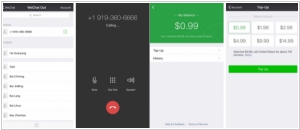
Chinese Internet giant Tencent's popular messaging app, WeChat, is entering the international telephone calling arena, posing a challenge to Skype. Initially launched for users in the U.S., Hong Kong, and India, the new service called 'WeChat Out' will gradually expand to other regions. Setting itself apart from WeChat's existing voice and video calling features, 'WeChat Out' enables users to make calls to actual phone numbers, including both mobile and landline numbers, not limited to WeChat users only. To kickstart the service, WeChat is offering an initial $0.99 credit, equivalent to approximately 100 minutes of calls, but the exact pricing beyond the promotional credit is yet to be disclosed.
2015. Telegram launched public chats - Channels
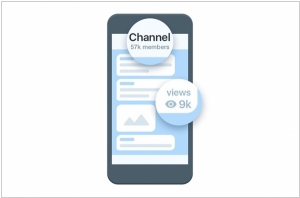
Secure messenger Telegram has introduced a new feature that holds great utility for businesses—Channels. This feature serves as a powerful tool for broadcasting messages to large audiences, surpassing the capabilities of the old Broadcast lists in every aspect. Channels can accommodate an unlimited number of members and offer the option to be public, complete with a permanent URL. Furthermore, each post in a channel is equipped with its own view counter, encompassing views from forwarded copies as well. Notably, new members joining a channel can access the entire message history from day one. Channels are now accessible through Telegram's iOS and Android apps.



